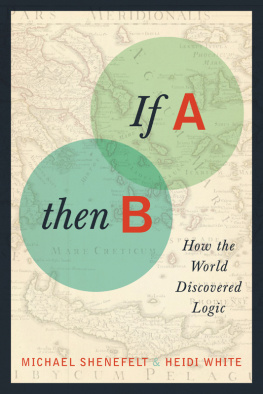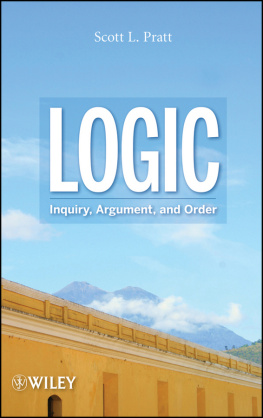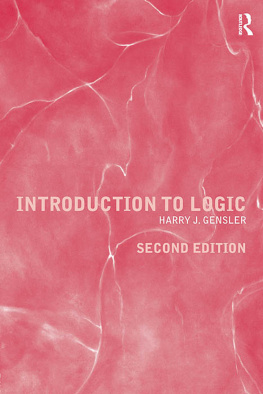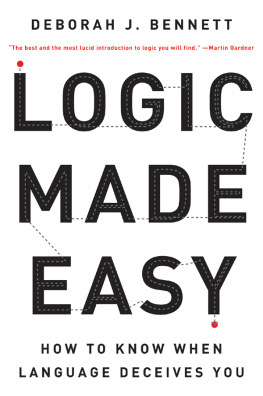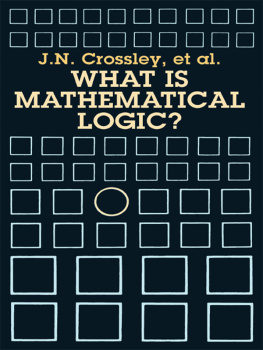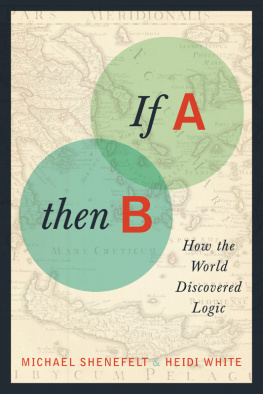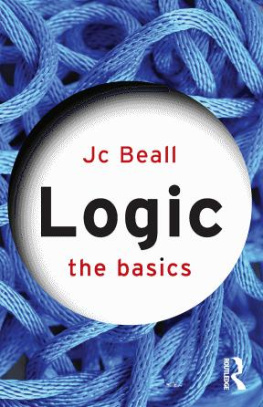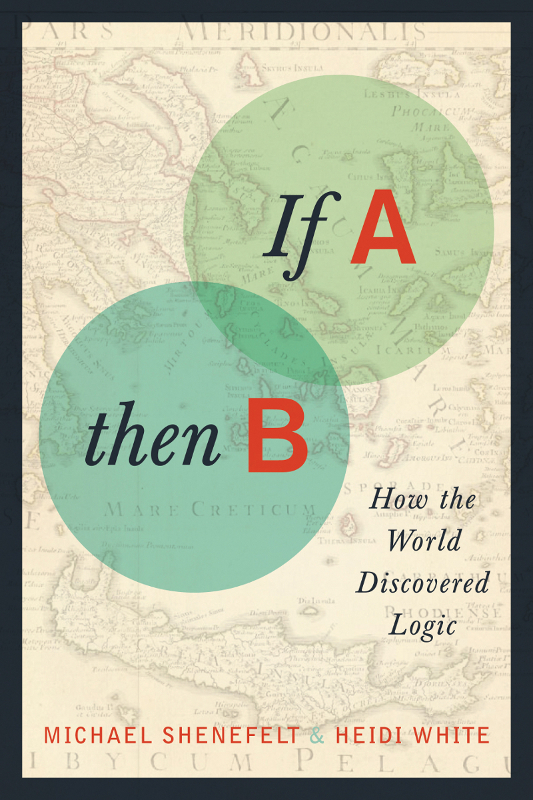
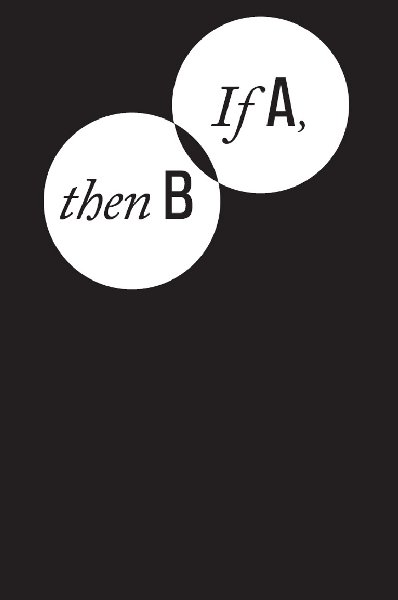
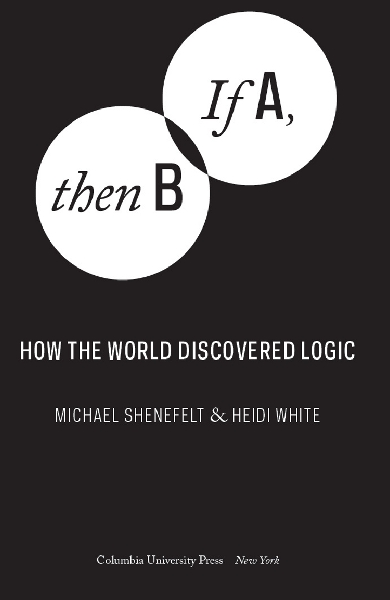

Columbia University Press
Publishers since 1893
New York Chichester, West Sussex
cup.columbia.edu
Copyright 2013 Michael Shenefelt and Heidi White
All rights reserved
E-ISBN 978-0-231-53519-9
Library of Congress Cataloging-in-Publication Data
Shenefelt, Michael, 1953
If A, then B: how the world discovered logic / Michael Shenefelt and Heidi White.
pages cm
Includes .
ISBN 978-0-231-16104-6 (cloth : alk. paper)ISBN 978-0-231-16105-3 (pbk.: alk. paper)ISBN 978-0-231-53519-9 (e-book)
1. LogicHistory. I. Title.
BC15.S54 2013
160.9dc23 2013007780
A Columbia University Press E-book.
CUP would be pleased to hear about your reading experience with this e-book at .
Cover design: Jarrod Taylor
References to websites (URLs) were accurate at the time of writing. Neither the author nor Columbia University Press is responsible for URLs that may have expired or changed since the manuscript was prepared.
To Gloria Willis Shenefelt
and Johanna Sue White

CONTENTS
The Strange Nature of Logical ValidityWhat Makes a Valid Argument Valid?The Divine-Command Theory of LogicLogic as Culturally InvariantLogic as Timeless and PlacelessThe Social History of Logic
The Effect of Geography on the Flow of IdeasThe Effect of the Sea TradeTransportation and CivilizationClassical Greece as the Extreme CaseThe Athenian Assembly
The Study of Argument in IndiaThe Singularity of AristotleThe Effect of the Athenian AssemblyThe SophistsThe Separation of Logic from Rhetoric
Manipulating ClassesThe Square of OppositionThe Underlying Mystery of the SquareWittgensteins Proposed SolutionWittgensteins Mistake
The StoicsThe Logic of ChoiceThe Nature of Compound PropositionsInterlocking Forms of ArgumentThe Laws of Contradiction and Excluded MiddleMore Interlocking FormsThe Basis of Computer Logic
Paradoxes of TruthThe Nature of Fuzzy LogicIs Validity Relative?Does Formal Logic Ultimately Depend on Common Sense?
The Origins of the Wars of ReligionThe Importance of Firm FoundationsThe Logical Complexity of Our PremisesThe Origins of Formalized Logic and MathematicsThe Paradoxes of FormalizationThe Double Meaning of FoundationsThe Outlook of Thomas KuhnKuhns ErrorCompetition Between Scientific Theories
The Challenge of the New LiteratureThe Triumph of the Vernacular and the Growing Spirit of EqualityThe Rise of Modern Political TheoryThe Right of Dissent and the Reliance on InductionInduction as the New RationalityAristotles Influence on the MedievalsThe Rational Foundations of InductionThe Apparent Irreducibility of InductionThe Assumptions of Empirical Science
The Battle for Parliamentary ReformJeremy Bentham and the Legacy of the EnlightenmentBenthams Book of Fallacies
The Impact of the Industrial RevolutionThe Origins of Symbolic LogicThe Logic of RelationsThe Effect of the New MathematicsThe Impact of QuantificationFreges New Foundation for MathematicsThe Invention of Digital Computing
Abelards Rise to PowerAbelards Attack on Faith Without ReasonAre Faith and Reason Compatible?The Foundations of Rational BeliefRationality After the Wars of ReligionThe Vigilance of Reason
Ad Hominem Argument (To the Person)Begging the QuestionBig LieCause and Effect (Confusions of)Circular DefinitionCircular ExplanationCompositionContinuum (Denying Differences in)DivisionEmotional AppealEquivocationEvils and Remedies (Confusing Them)False AnalogyFalse AntithesisFalse AuthorityFalse Dichotomy (or False Dilemma)Formal FallacyGeneralizing (Errors of)InnuendoIrrelevant Conclusion (or Ignoratio Elenchi , Ignorance of Proof)Is and Ought (Confusing Them)Loaded QuestionNegative ProofPretentious DictionSham InsightStraw ManSuppressed Evidence (or Ignored Evidence)Vague MetaphorWrapping Oneself in the Flag
THE WORLD is logical, according to some. Others call it absurd. We have never been sure who is right, but what we do know is that nobody grasps the absurd unless that person also senses the logical. Yet, in that case, where does our sense of logic come from? What is it really a sense of ? And what drove people to start studying logic in the first place?
There are excellent histories of logic already in circulation (including the magisterial Development of Logic by William and Martha Kneale, Oxford University Press, 1962). And thanks to online sources, there are also many able accounts of the latest work in the field, including nonclassical symbolic logic. Nevertheless, we believe our book to be fundamentally different from previously published works. Earlier histories of logic have focused on the specific stories of individual logicians, relating their discoveries, their intellectual influences, and their personal predicaments. But logic is the work of more than logicians alone; logicians, like other writers, need readers, and the forming of a readership is just as vital to the survival of a logicians insights as the logicians individual circumstances. In logic, as in other departments of intellectual history, a readership is a consequence of social forcesforces that affect large numbers of people, quite apart from individual will. As a result, if one then leaves out of consideration the forces shaping such a readership (or the forces shaping a logicians audience), one is in danger of missing much of the explanation of why logical discoveries show up when and where they do.
Aristotle, for example, inherited a rich philosophical legacy in classical Greece, but equally important, in our view, was the reaction of significant numbers of his contemporarieshis audienceto the follies of the Athenian Assembly, an institution that owed its existence, indirectly but no less crucially, to Greeces peculiar geography. Aristotles work required not only an intelligent thinker to invent it but also an appreciative audience to preserve it, and what made Aristotles work interesting to this audience in the first place was its connection to the argumentation of the Assembly and to the political disasters of his age. The Athenians had already suffered through immense political tragedy, especially during the Peloponnesian War, and in acting out this tragedy, they had prepared the ground for Aristotles insights. Logic captured their interest from the start because many of them believed their politics had already been undermined by sophistry.
Suppose, then, one were to ask, Why did the originator of formal deductive logic emerge in classical Greece rather than in, say, classical India or classical China, which also offered rich philosophical legacies? We believe much of the answer lies not in Aristotles personal training and experience but in a broader set of economic and political conditionsconditions encouraged by the physical environmentthat had made classical Greek society especially sensitive to public argumentation and highly vulnerable to its political effects. To be sure, these circumstances would have been almost as much a part of Aristotles experience as anyone elses, but the key point is that the circumstances were general, not specific to an individual, and in our view, it is precisely such general circumstances that have been underrated.
Next page
